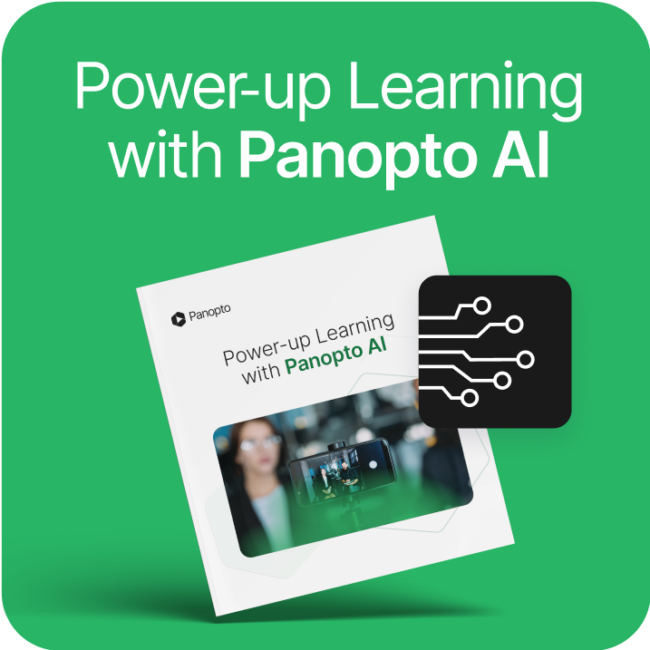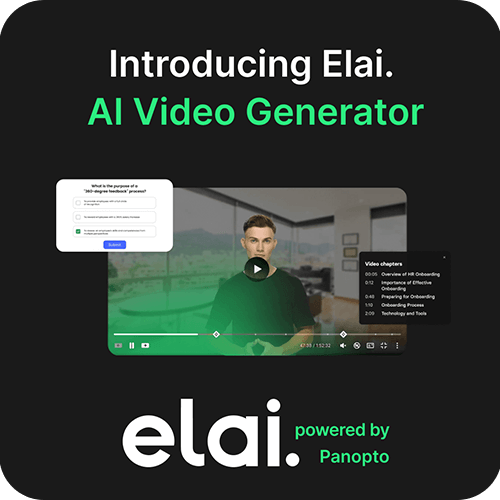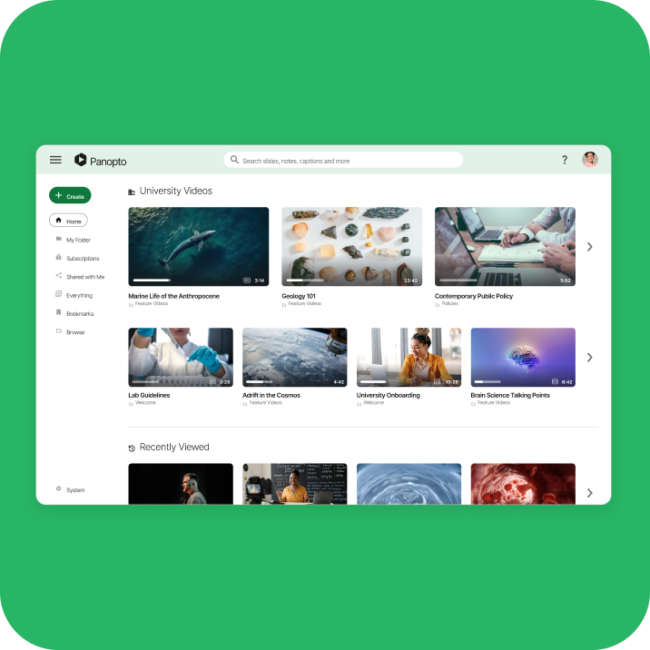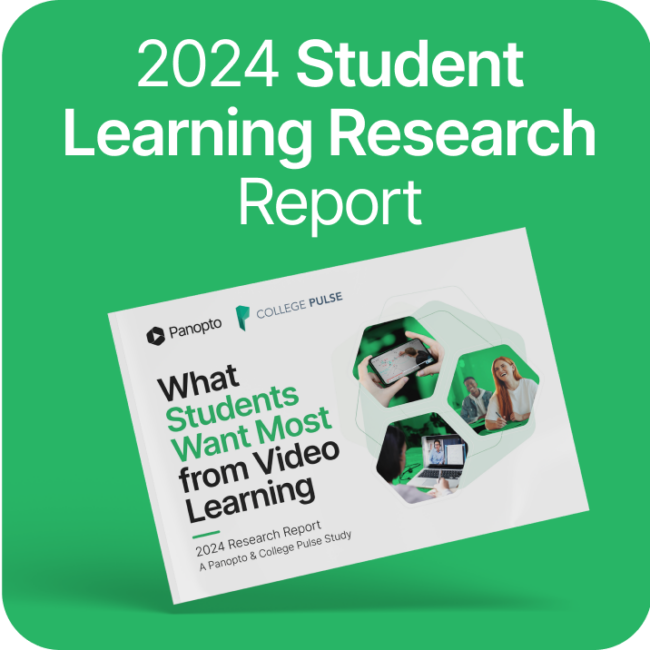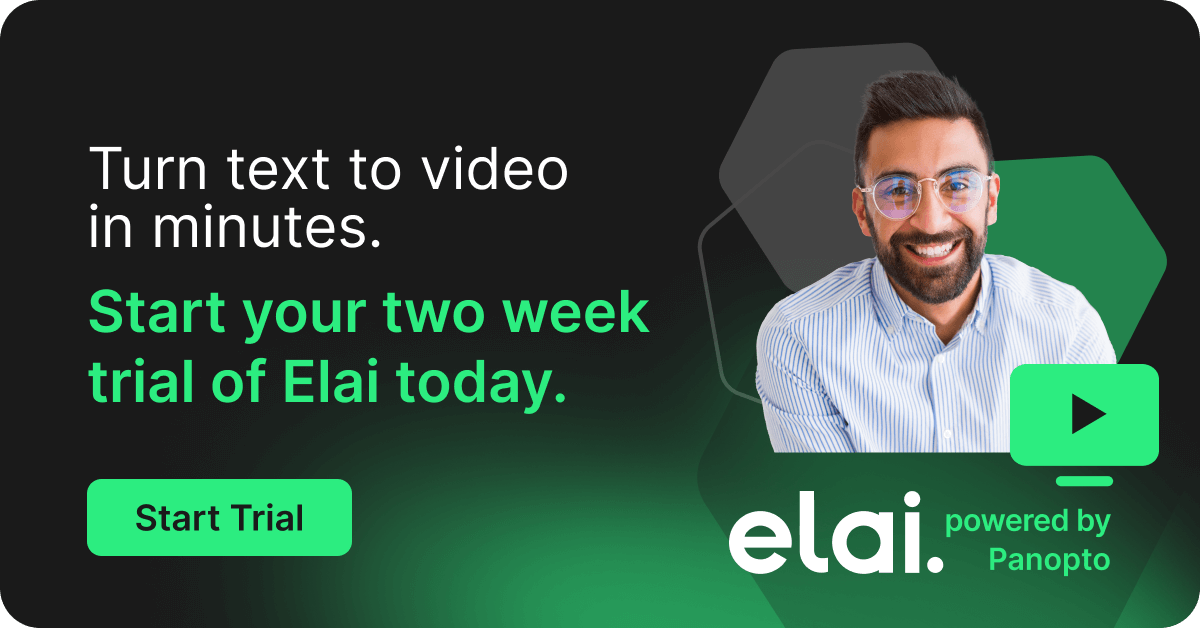- Uncategorized
Reflections on the Panopto Conference 2014: ‘Innovation with Video: Improving teaching and learning through technology’
by Tom Davy, CEO, Panopto EMEA
This week Panopto EMEA held its annual conference at Senate House, central London. We have been running similar events ever since we set up an office in the UK to bring the community together to discuss the opportunities and challenges surrounding the use of video at education institutions. This year we focused on innovative use cases for video and how these can be supported. Our inspiration for much of the content was, of course, the experiences of our users and their students.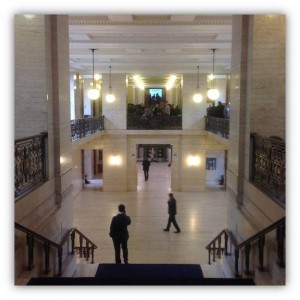
We have seen increasing numbers of universities and colleges start to move beyond using Panopto exclusively for lecture capture and exploring the ways in which video can open up new approaches to teaching and learning. We were lucky to be joined by representatives from nine customer institutions who covered a whole range of different uses for Panopto including supporting the flipped classroom, offering video feedback, enabling student recordings and live webcast of events, and facilitating teacher training and student assessment.
I kicked the day off with some trends we’ve noticed in the growth and diversification of video use within UK higher education over the past four years. During this time, we have seen mainstream acceptance of lecture capture accompanied by increasing (albeit smaller scale) uptake of newer video uses. However, it’s also fair to say that while the concept of lecture recording is now commonplace, recent research from UCISA suggests that it is still only being used within a minority of courses at most institutions.
Re-Humanizing Digital Content
I was followed by David White, Head of Technology Enhanced Learning at the University of the Arts London. In his keynote talk, he urged universities to re-humanise their digital content and talked about the possibilities video lectures offer to do just that. Using tweets from Aston University students as an example, he showed that students watching lecture recordings back will comment on the fact they can hear themselves ask a question in the lecture hall. This demonstrates that it is important to them that they were physically there and can therefore re-live aspects of the lecture experience digitally afterwards. He went on the comment that the idea of ‘presence’ is still vitally important to people – that lecture recordings can help extend the idea of presence into a digital environment, complementing, rather than replacing, face-to-face interaction. His talk also challenged the notion that universities should merely meet student expectations, pointing out that most students don’t come into higher education with a firm idea of how they will be taught. He suggested instead that universities should look to implement the most engaging teaching methods and clearly communicate to students how they are going to be taught, not just what they are going to be taught.
The Students’ Take on Video in Education
David’s session was followed by a panel of students talking about their own use of video and lecture recordings. Representatives from Newcastle University (David Morris), the University of Essex (Mikya Rozner) and the University of Birmingham (Lauren Morrow) debated themes such as whether students would stop coming to lectures if they were recorded, the impact on their learning experience when only some lectures are recorded while others are not, whether or not video of the lecturer made a difference (as opposed to just capturing audio and slides/screen) and the effectiveness of flipped classroom teaching.
All of the students felt that as recordings are usually used to consolidate knowledge or revise, physical attendance at lectures was unlikely to be affected. They also agreed that having access to only some lectures was frustrating and felt that lecture recordings were useful across the board and should be made available more widely. Those that had access to lecture recordings in their first year, but not for courses in subsequent years described their surprise on discovering that this technology was not standard.
There was a difference of opinion over the importance of having video of the academic accompanying the audio and slide recordings. David from Newcastle University felt that the recordings were purely functional and therefore audio and slides were sufficient, whereas Lauren from the University of Birmingham and Mikya from the University of Essex felt that video added a compelling extra layer of personalisation and engagement that they believed made the recording even more useful.
Lauren then talked about her experiences of the flipped classroom, suggesting that the more active learning facilitated by this teaching method ultimately gave her a richer learning experience.
An academic panel featuring Dr Laura Ritchie from the University of Chichester, Dr Phil Ansell from Newcastle University, Dr Jeremy Pritchard from the University of Birmingham, and chaired by Sarah Sherman representing the Bloomsbury Colleges then responded to the comments made by the students. They also talked about some of their own personal experiences of increasing use of video at their institutions.
The Future of Video at Education Institutions
The morning sessions concluded with a talk from Panopto’s Founder and CTO, Eric Burns. Eric took a look at the future of video and how this would impact education institutions. His ultimate conclusion was that while video use is set to grow even further, ultimately bricks and mortar institutions will emerge stronger, with digital technologies helping universities and colleges respond to students’ digital needs while also allowing them to reimagine the contact time they have with learners in the real world.
During the afternoon, delegates split into two groups – one focusing on teaching and learning themes, the other on technical subjects. The teaching and learning topics included:
- How to make the flipped classroom work in practice, presented by Dr Jeremy Pritchard from the University of Birmingham
- Student recordings, presented by Dr Laura Richie from the University of Chichester and Mark Rogers from Leeds College of Music
- Video for staff self-reflection and more, presented by Benn Cass from John Leggott College
These sessions provided a fascinating insight into the varied ways institutions are now using Panopto and it was really inspirational to hear about the effects some of these new teaching approaches were having on the student experience.
Running in parallel, we had technical sessions covering the following:
- An ‘Ask the Experts’ session with Panopto’s Founder and CTO Eric Burns and our Director of Integrations Jenn Lin
- A session on hardware with Panopto’s Neil Burdess and David Pammenter from the University of Edinburgh
- A look at how Panopto allows institutions to use their videos and playlists anywhere, presented by Jenn Lin.
Attended by more than 120 delegates, the event provided a fantastic forum for learning, debate and discussion. As the CEO of Panopto EMEA, it was a chance to reflect on how far we’ve come and how lucky we are to have such an engaged user base who are actively experimenting with video so that they can exceed, not just meet, student expectations.
Ready to try video at your education institution? Contact our team today for a free trial of Panopto.
